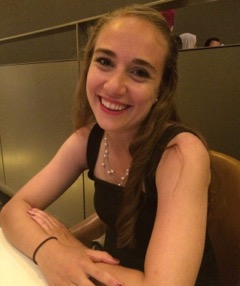
Rachael Gamlin
Everywhere on Auburn’s campus, you can find students who are passionate about a wide variety of causes, and senior Rachael Gamlin is no exception. Growing up in Birmingham, she didn’t have much experience with Auburn until a college visit led her to fall in love with the university and the sense of family she discovered here. She committed to Auburn and at the start of her freshman year Rachael connected with students who helped her discover her niche among the many organizations around campus, and in the process realized her enthusiasm for sustainability.
Rachael jumped in and joined two food-focused groups: the Committee of 19 and the Campus Kitchens Project (AU KCP). The Committee of 19 focuses on advocacy for food policy change while Campus Kitchens works in the Auburn community to alleviate hunger by gathering, managing, and delivering unused food to those in need. Rachael has been actively involved in the leadership of both organizations. She appreciates the strong sense of community she shares with other students and community partners who care about these issues as much as she does, and the direct, positive impact of their collective efforts.
While working with both organizations, Rachael began to see how food security is a sustainability issue. Many of the issues Rachael and her colleagues work on help define sustainable food systems. A food system is sustainable when food is healthy and nutritious, grown in a safe and ecologically responsible way and as locally as possible, people who grow food make a living wage, and great effort is made to eliminate waste and provide sufficient food for everyone. Of all her accomplishments with these groups, Rachael is most proud of the teamwork that connects hunger and sustainability in order to make a lasting difference.
Rachael’s work with the Committee of 19 focuses on policy advocacy and educating others to help people in Alabama, especially right here in Lee County. She says that the group is hoping to get involved with a state-wide campaign to repeal the grocery sales tax. Alabama is one of very few states that tax groceries. The repeal campaign points out that it is a terribly regressive tax that has by far the largest impact on those who are least able to pay. The grocery tax is a big reason why low-income Alabamians pay twice as much of their income in state and local taxes as the very wealthiest citizens of our state. Another Committee of 19 project is to work with local farmers to gather unharvested crops that can be donated rather than left in the field.
As for AU Campus Kitchens Project, one initiative is to reach out to fraternities and ask them to donate unused food from their individual kitchens. The AU CKP will also help the effort at local farms to glean unharvested crops. AU CKP will receive some of the produce and be able to provide fresh vegetables throughout the year. The Auburn Campus Kitchen Project is hoping to expand both operations and distributions of food as there continues to be unmet need in the community.
There is much to be done to achieve food security and sustainable food systems, and student participation can make a big difference. Of course, there are numerous obstacles to involvement. Students are busy, it takes time to learn about issues, and it can be hard to choose a cause when there are so many worthwhile opportunities. It can feel overwhelming.
Rachael is convinced there is an issue or a cause for every student who wants to become part of a group and make a difference. Rachael recommends that students explore options around campus and identify issues they truly care about, because it’s far easier to get involved when you’re passionate about something. She also advises that a good way to introduce people to issues is by meeting them where they are and encouraging them to make conscious changes in their personal lives. For example small changes that can make a difference when it comes to food include: purchasing healthy, fresh, locally produced food whenever possible; making sure no food is wasted; and donating food to a food drive.
She says that when we all take these small steps in our personal lives, and join together with others to make a difference, we can accomplish great things.
Post contributed by Alicia Valenti, Office of Sustainability Intern



